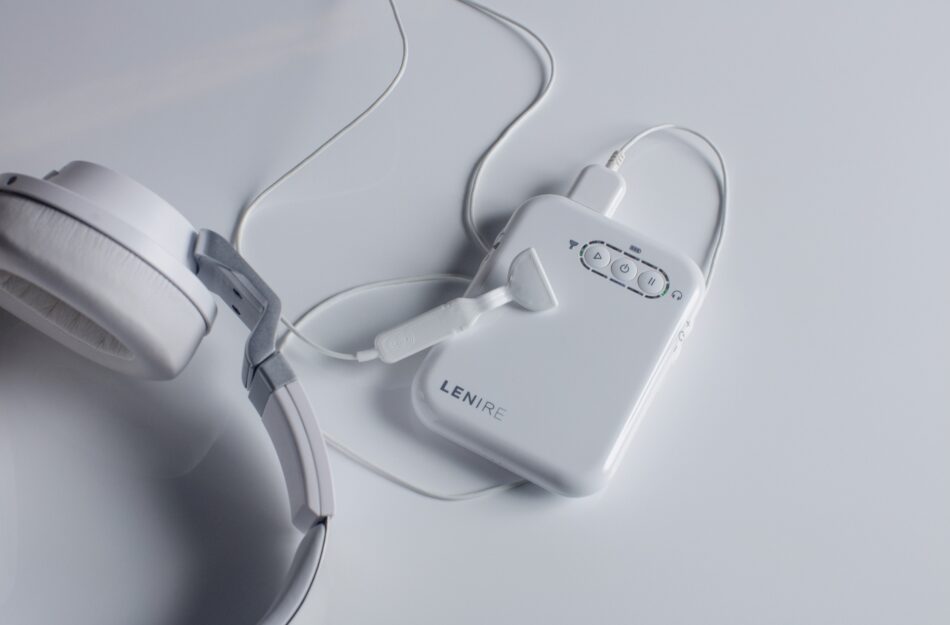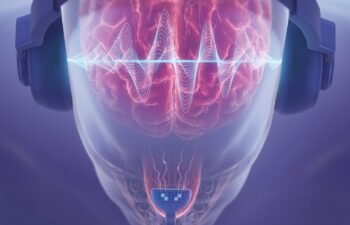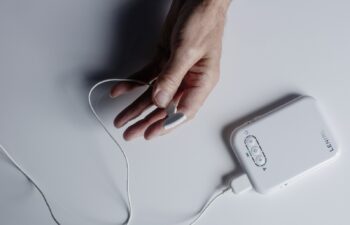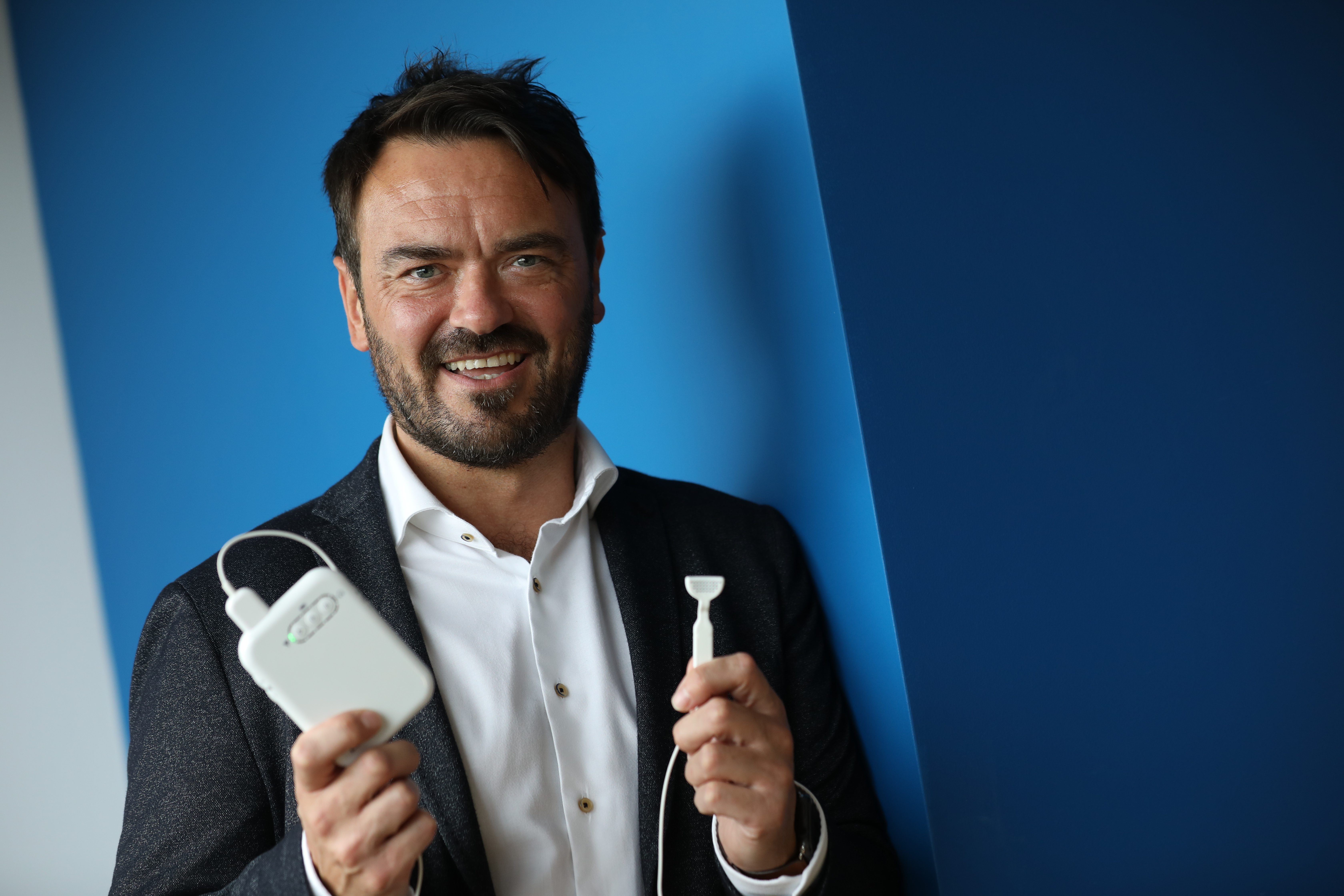Real-world evidence demonstrates the safety and efficacy of Lenire device for improving symptoms in tinnitus patients

Independent study from Germany confirms that bimodal neuromodulation can significantly reduce tinnitus symptoms in a real-world clinical setting
An independent real-world study, performed at the German Hearing Center (DHZ) at Hannover Medical School, has found that 85% of tinnitus patients experienced a reduction in their tinnitus symptoms, based on the Tinnitus Handicap Inventory(i) score across 20 patients, when using the Lenire treatment device.
This study showed that six to 12 weeks of treatment using Lenire’s sound and electrical stimulation of the tongue can safely achieve clinically meaningful improvements in tinnitus symptom severity in a real-world clinical setting.
The study was led by Drs. Thomas Lenarz, Anke Lesinski-Schiedat, and Andreas Buechner from the Department of Otolaryngology at the Hannover Medical School, Germany and the results were recently published in the highly ranked scientific journal, Brain Stimulation(ii).
The real-world data are consistent with the outcomes of Neuromod’s large-scale clinical trial of the Lenire device, TENT-A1, which included 326 participants. The TENT-A1 trial, the results of which were published in October 2020(iii), showed that 86.2% of treatment-compliant participants reported an improvement in their tinnitus symptoms after a 12-week period using Lenire. You can find more details about our TENT-A1 trial on our clinical trials page.
The Hannover study involved shorter durations of treatment (6-12 weeks) and observed a mean improvement (reduction) in THI score of 10.4 points, which exceeds the clinically meaningful difference of 7 points.
THI, shorthand for Tinnitus Handicap Inventory, is a clinical standard for measuring the impact of tinnitus on someone’s day-to-day life. Measured on a scale of 100, the higher the score, the greater the impact of tinnitus. Reducing a person’s THI score should correspond to improved quality of life by reducing how their tinnitus is affecting them, especially when the score reduces by more the clinically meaningful difference.
This real-world data from the Hannover study is in line with the TENT-A1 study, which observed similar improvements after 6 weeks of treatment and achieved a total of 14.6 points improvement after a full 12 weeks of treatment. Furthermore, there were no reported treatment-related adverse events.
Welcoming the publication of this new analysis, Dr Ross O’Neill, CEO and Founder of Neuromod Devices said: “Results from real-world studies can turn out to be different from those of clinical trials, for a variety of reasons, so it is really encouraging to see that the study performed by Professor Lenarz’s team showed similar levels of efficacy and safety for the Lenire device as in our own large-scale TENT-A1 clinical study, which was published as the cover story in Science Translational Medicine just over a year ago. The Hannover study involved shorter-term use than our studies but we saw similar levels of improvement after 6 weeks of use in the TENT-A1 study. Furthermore, there were no reported treatment-related adverse events with Lenire, confirming the device’s safety in a real-world setting. We are committed to contributing to the body of evidence of using bimodal neuromodulation to treat tinnitus and we were encouraged to see Lenire perform well on studies conducted by eminent Otolaryngology clinicians and researchers, such as Professor Thomas Lenarz and his team in Hannover.”
About the TENT-A1 trial
The TENT-A1 clinical trial, which involved 326 participants across Ireland and Germany, demonstrated Lenire’s efficacy in improving participant’s tinnitus symptoms. 86.2% of treatment-compliant participants reported an improvement in their tinnitus symptoms after a 12-week treatment period(iv). When followed up 12 months post treatment, 80.1% of treatment-compliant participants had sustained improvements in their tinnitus symptoms.
It represents one of the largest and longest followed-up clinical trials ever conducted in the tinnitus field and was the cover story for the scientific journal Science Translational Medicine in October 2020. It’s encouraging for people with tinnitus that an analysis of real-world results is consistent with TENT-A1, further showing Lenire’s viability as a treatment option to improve their tinnitus symptoms.
Lenire’s bimodal stimulation can improve the symptoms of tinnitus by retraining neurons in the brain to reduce its attention and sensitivity to the tinnitus sound. You can find out more about how Lenire works on our science page.
Read the TENT-A1 paper here
Read more about the Hannover Study here
References
[i] Tinnitus Handicap Inventory is a clinical standard for measuring the impact of tinnitus on someone’s day-to-day life. Measured on a scale of 100, the higher the score, the greater the impact of tinnitus. Reducing a person’s THI score should correspond to improved quality of life by reducing how their tinnitus is affecting them.
[1] Buechner A, Lesinski-Schiedat A, Becker P, Lenarz T, Real-world clinical experience with bimodal neuromodulation for the treatment of tinnitus – A case series, Brain Stimulation (2022), doi: https://doi.org/10.1016/j.brs.2022.01.022.
[1] Conlon et al., Sci. Transl. Med. 12, eabb2830 (2020)
[1] As measured by Tinnitus Handicap Inventory score



